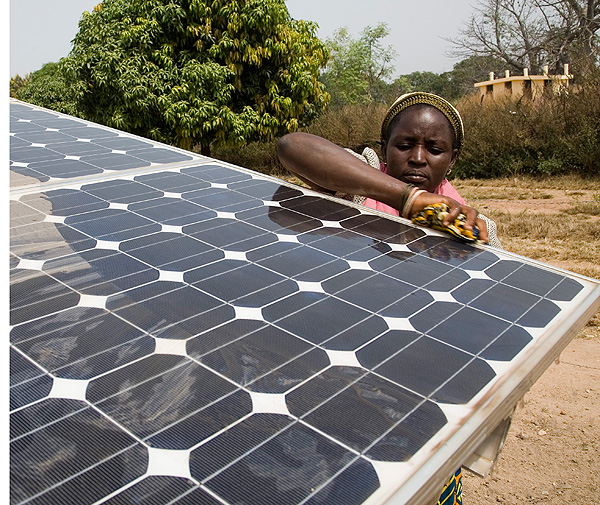Sub-Saharan Africa is changing rapidly. New infrastructure, economic development and urbanisation are transforming society. Poverty is declining, and the middle class is growing.
Yet two-thirds of the population – more than 600 million people – still lack access to electricity, and more than 700 million cook with traditional biomass: Wood, charcoal, dung and agricultural residues, according to the International Energy Agency.
Around 65 per cent of primary schools and over 30 per cent of health facilities also lack electricity. In Kenya, for example, 76 per cent of the population rely on traditional biomass for cooking, and only 23 per cent have electricity, World Bank data shows.
How is this possible? To some extent, it reflects a broader struggle to meet Africa’s energy needs. As of 2013, the total power capacity installed in Africa was 147 GW – about the same as in Belgium, or what China installs every year or two, according to the African Development Bank.
But since governments have also prioritised energy for mining, industry and other large-scale investments, even with massive electrification efforts under way, the AfDB still expects half the population of sub-Saharan Africa to lack electricity in 2030. And although many countries have promoted clean cook stoves and off-grid household energy solutions, the scale of these efforts is much more modest.
Sub-Saharan Africa is changing rapidly. New infrastructure, economic development and urbanisation are transforming society. Poverty is declining, and the middle class is growing.
Yet two-thirds of the population – more than 600 million people – still lack access to electricity, and more than 700 million cook with traditional biomass: Wood, charcoal, dung and agricultural residues, according to the International Energy Agency.
Around 65 per cent of primary schools and over 30 per cent of health facilities also lack electricity. In Kenya, for example, 76 per cent of the population rely on traditional biomass for cooking, and only 23 per cent have electricity, World Bank data shows.
How is this possible? To some extent, it reflects a broader struggle to meet Africa’s energy needs. As of 2013, the total power capacity installed in Africa was 147 GW – about the same as in Belgium, or what China installs every year or two, according to the African Development Bank.
But since governments have also prioritised energy for mining, industry and other large-scale investments, even with massive electrification efforts under way, the AfDB still expects half the population of sub-Saharan Africa to lack electricity in 2030. And although many countries have promoted clean cook stoves and off-grid household energy solutions, the scale of these efforts is much more modest.
Another notable success story is that of the Energising Development Kenya programme, run by GIZ. Women make, install and market the stoves. As of June 2015, more than 1.45 million stoves had been installed in different parts of Kenya, serving over 7 million people.
UN Women is working actively to promote women’s access to technologies through programmatic interventions and policy dialogue in many countries in the region.
This past Tuesday was International Women’s Day, a strong reminder of the urgent need for actions to empower women, achieve equal rights, reduce poverty, and improve women’s health and education.
Women’s contributions are vital to African economies – in businesses, on farms, as entrepreneurs or employees, and through unpaid care work at home.
Recognising women’s central role in transforming energy systems will bring huge economic and social benefits, directly contributing to gender equality, poverty eradication and inclusive economic growth.
Fiona Lambe is a research fellow at Stockholm Environment Institute’s Stockholm Centre. Hannah Wanjiru is a research associate at the Institute’s Africa Centre in Nairobi. Asa Torkelsson is advisor for economic empowerment in the Eastern and Southern Africa Regional Office of UN Women in Nairobi.


One Response
Very very great.
http://www.onenairaadvice.blogspot.com